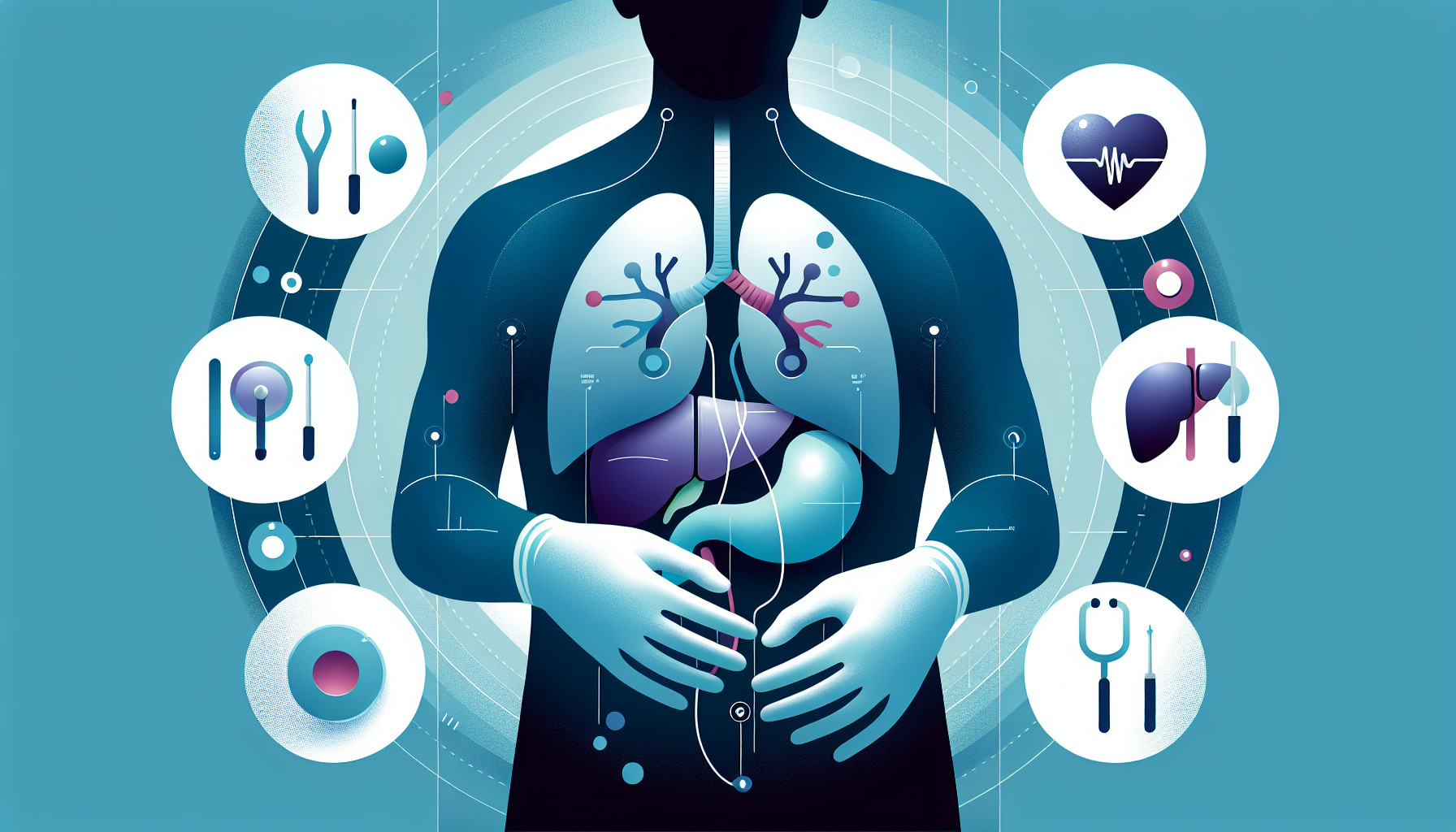Our Summary
This research paper is about the progress and challenges in kidney transplants since the first operation was done in Denmark in 1964. Since then, nearly 10,000 such procedures have been done. In the last 20 years, the success rate of these transplants has gotten better, even though the donors and recipients are older and often have other health issues. However, there is still a shortage of kidneys for transplant. The paper will discuss these challenges and the advancements made to overcome them.
FAQs
- When was the first kidney transplant conducted and where?
- How has graft survival improved in organ transplants over the past two decades?
- What are the current challenges in kidney transplants?
Doctor’s Tip
One helpful tip a doctor might tell a patient about organ transplant is to carefully follow the post-transplant medication regimen prescribed by their healthcare team. This includes taking immunosuppressant medications to prevent rejection of the transplanted organ, as well as managing any potential side effects or interactions with other medications. It is important to attend all scheduled follow-up appointments and communicate any concerns or changes in health to the transplant team promptly. Proper medication adherence and regular monitoring can help ensure the long-term success of the transplant.
Suitable For
Patients who are typically recommended for organ transplant include those with end-stage organ failure, such as kidney, liver, heart, lung, or pancreas failure. These patients often have exhausted all other treatment options and have a significantly reduced quality of life due to their organ failure. Additionally, patients must meet certain medical criteria to be eligible for a transplant, such as being healthy enough to undergo surgery and able to comply with post-transplant medication regimens. Organ transplants are typically recommended for patients who have a good chance of benefiting from the transplant and have a low risk of complications.
Timeline
Before the transplant:
- Patient is diagnosed with end-stage organ failure and is referred to a transplant center for evaluation.
- Patient undergoes a series of medical tests and evaluations to determine eligibility for a transplant, including blood tests, imaging studies, and psychological assessments.
- Patient is placed on the national transplant waiting list and waits for a suitable donor match to become available.
- Patient may undergo dialysis or other treatments to manage their condition while waiting for a transplant.
After the transplant:
- Patient undergoes the transplant surgery, during which the diseased organ is removed and the donor organ is implanted.
- Patient is closely monitored in the hospital for any signs of rejection or complications.
- Patient is discharged from the hospital and continues to be monitored by transplant team through regular follow-up visits.
- Patient must take immunosuppressant medications to prevent rejection of the new organ for the rest of their life.
- Patient may experience complications or side effects from the medications, and will need to make lifestyle changes to maintain the health of the transplanted organ.
- Patient may experience improved quality of life and increased longevity as a result of the successful transplant.
What to Ask Your Doctor
- What are the potential risks and complications associated with the organ transplant procedure?
- How long will the recovery process take, and what can I expect during this time?
- What are the long-term implications of receiving an organ transplant, and how will it affect my overall health?
- How will I need to adjust my lifestyle, including diet and exercise, after receiving an organ transplant?
- What support services are available for organ transplant recipients, such as counseling or support groups?
- How often will I need to follow up with my doctor after the transplant, and what tests or monitoring will be required?
- What is the success rate of organ transplants at your facility, and what factors contribute to a successful outcome?
- How will the transplant affect my current medications and any other medical conditions I have?
- What are the potential risks and benefits of living donor versus deceased donor organ transplants?
- Are there any alternative treatments or options to consider before proceeding with an organ transplant?
Reference
Authors: Mosholt KSS, Rohrsted M, Skov K, Bistrup C, Akgül C, Sørensen SS. Journal: Ugeskr Laeger. 2023 Apr 3;185(14):V12220744. PMID: 37057695
